As a podcaster, the headphones you choose to monitor and edit with can have a significant effect on your podcast’s production quality. In this post, you’ll learn about why headphone selection is essential for podcasting, and I’ll share my personal recommendations for the best podcast headphones.
Open vs. Closed Headphones for Podcasting
If you’ve ever shopped around for headphones, you’ve probably seen terms like “open” and “closed.” There are several differences between open and closed headphones, so let’s dive in and discuss which headphone variation is best for podcast recording and editing.
As you may have guessed, open headphones have exposed drivers. The image below shows a pair of Sennheiser HD650 open-back headphones. Notice how the outer grill allows air to pass in and out of the headphone’s speaker element. As a result of the free-flow design of open-back headphones, they typically have a more natural and expansive sound compared to closed-back models.
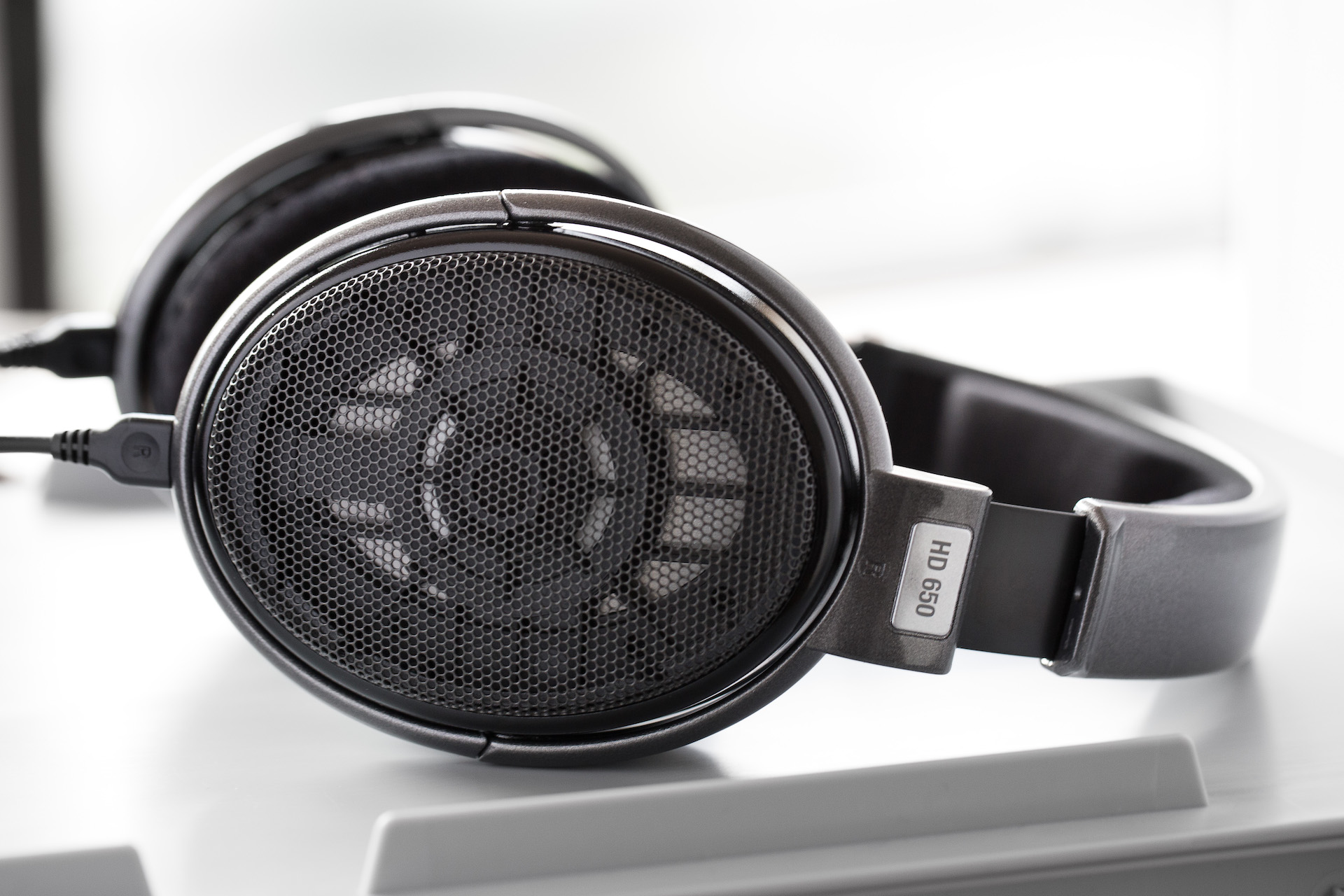
While open-back headphones do typically sound “better” than their closed-back cousins at the same price point, open-back headphones are not designed for podcasting due to sound leakage. If you monitor with open-back headphones while podcasting, your microphone will pick up the leakage from the headphones in addition to your live voice. This can lead to annoying echoes and other strange-sounding phenomena in your podcast. In short, your podcast will sound terrible if you use open-back headphones.
Closed headphones do not have exposed drivers. The image below shows a pair of Sony MDR-7506 closed-back headphones. Since there is no grill for air to pass through, closed-back headphones tend to sound less expansive than open-back models. For podcasters, closed-back headphones are ideal because they do not have sound leakage. This means your microphone won’t pick up any echoes during the podcast recording process. During the podcast editing and post-production process, using closed-back headphones will allow you to chop up and manipulate audio without any interference from environmental noise.
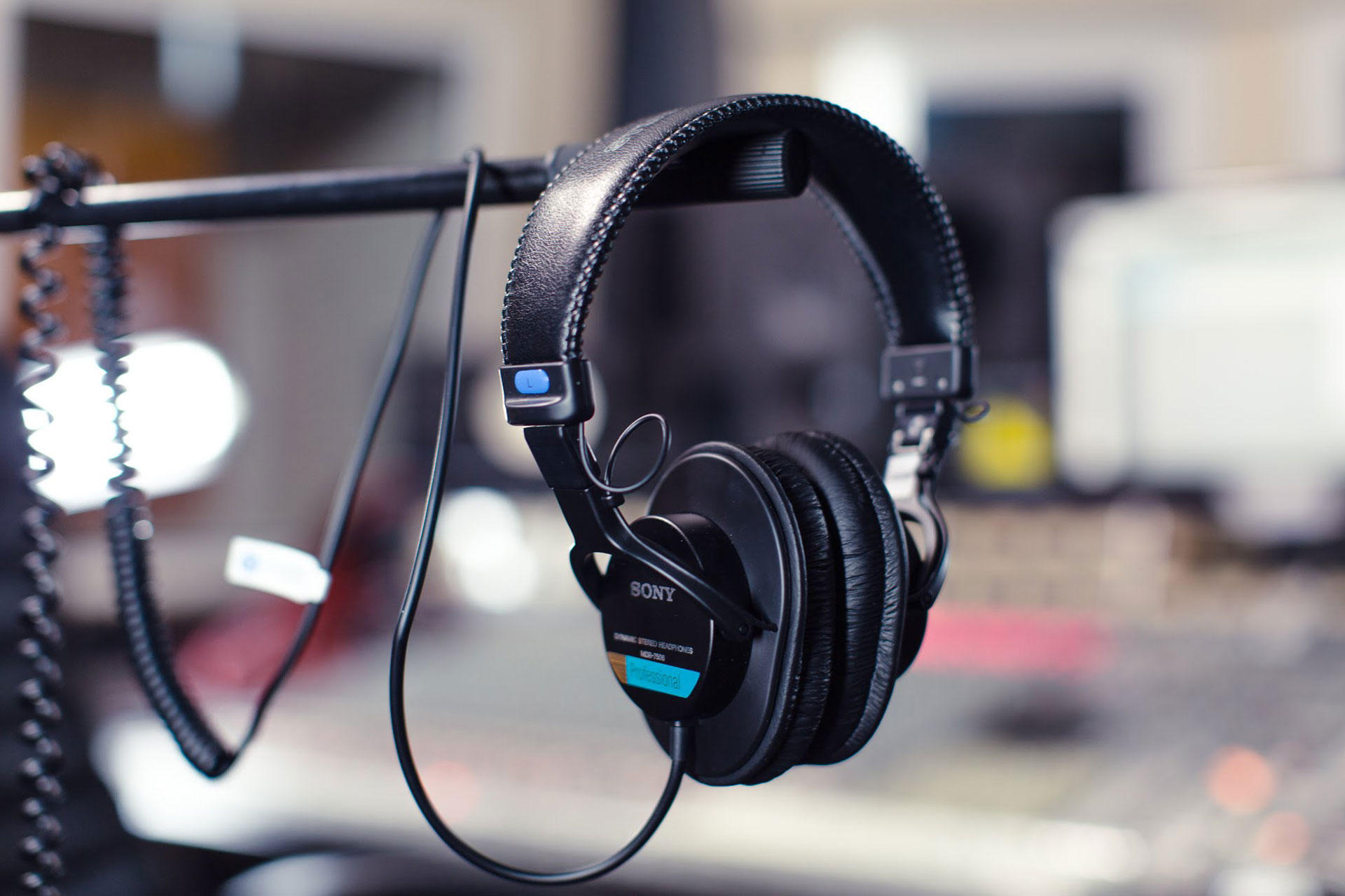
Wired vs. Wireless Headphones for Podcasting
Now that we’ve established that closed-back headphones are best for podcasting, let’s go over the practical differences between wired and wireless headphones.
Wireless headphones are undoubtedly more convenient than wired headphones. The cable-free nature of wireless headphones make them very appealing for casual listening and traveling. Unfortunately, wireless headphones have more latency than wired headphones, so they aren’t the best choice for podcasting recording and editing. Latency is the amount of time that passes between hitting the play button on your computer and hearing sound in your headphones.
The exact amount of audio latency depends on several factors, including the type of wireless technology (e.g. Bluetooth 4.0), environmental conditions, and more. For example, Apple’s AirPods have proprietary technologies that make them faster to respond than other wireless headphones. Latency can make the podcast editing process into a chore, as it can be challenging to make precise edits when zoomed in to the audio waveform. Considering the aforementioned points, I do not recommend using wireless headphones for podcasting.
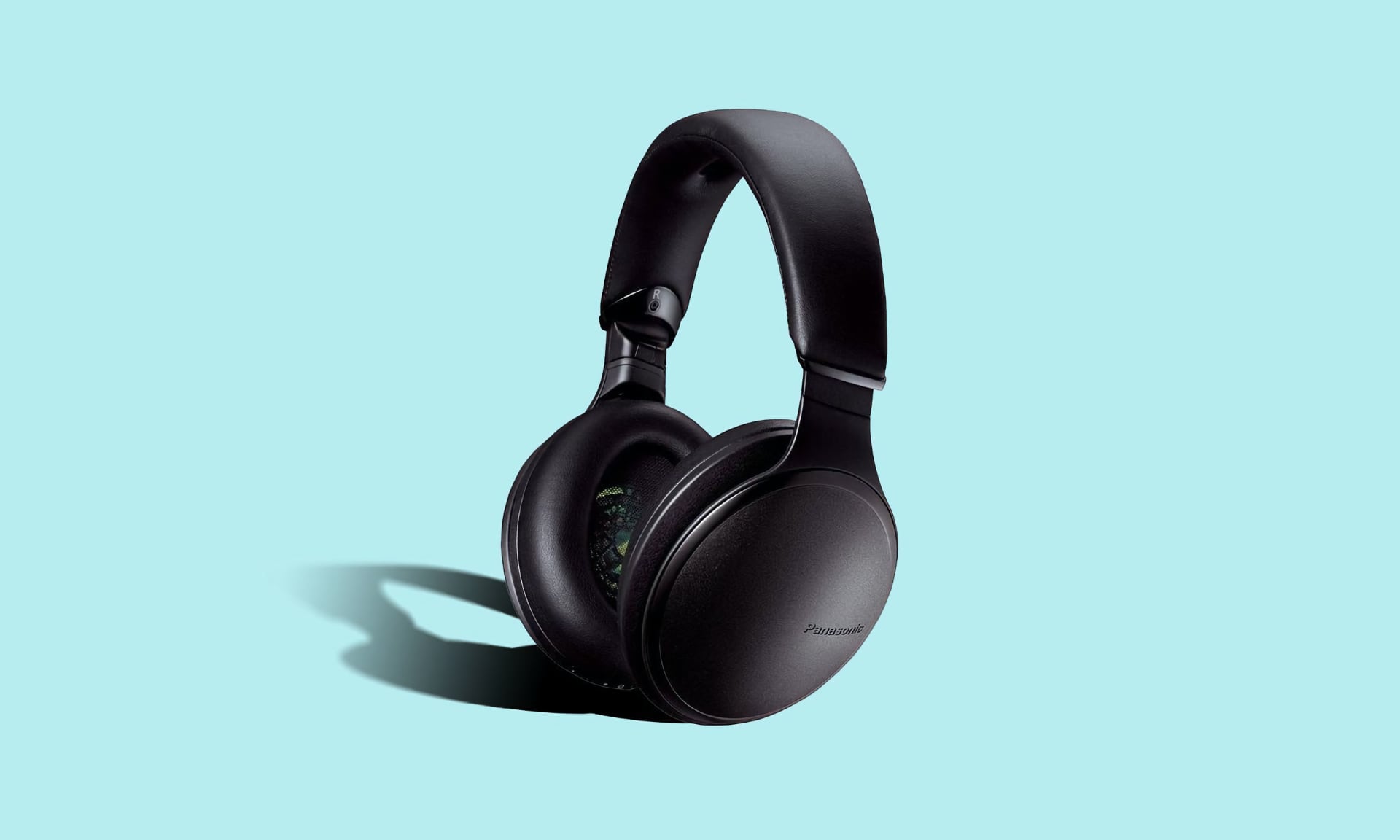
Wireless headphones are convenient, but don't use them for podcasting.
Wired headphones are not bottlenecked by software-related inefficiencies and environmental conditions. Instead, wired headphones bow down to physics and the speed of electrons traveling through a cable. Practically speaking, wired headphones have no perceivable latency, which is why they are the preferred choice for audio professionals. If you’re serious about podcasting, ditch the wireless headphones and pick up a decent pair of wired headphones instead.
The Best Headphones for Podcasting
With the above information in mind, we can conclude that the ideal headphones for podcasting are closed and wired. Below are my personal recommendations for closed-back wired headphones that are suitable for podcast editing and recording.
Sony MDR-7506
The Sony MDR-7506 headphones are industry standards when it comes to vocal and broadcast monitoring. They’re comfortable to wear for long podcasting sessions, and they have extremely low sound leakage.
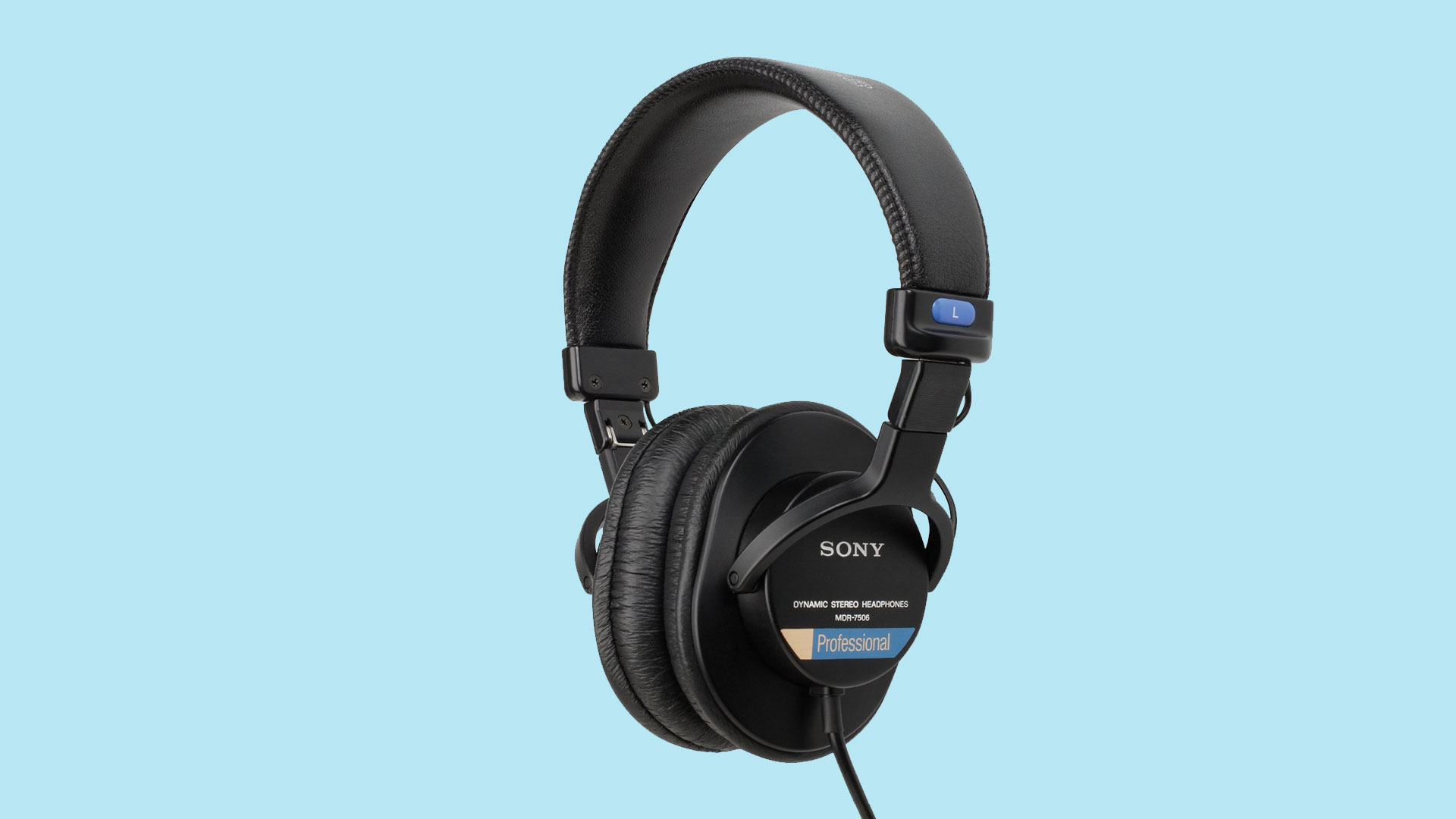
If you’re looking for a tried and tested headphone for podcast recording and editing, the Sony MDR-7506 headphones are a great choice.
Buy on Amazon
MSRP: $99
Audio Technica ATH-m50x
The Audio Technica ATH-m50x is a refreshed version of the ATH-m50, one of Audio Technica’s all-time best selling headphones. Compared to the the Sony MDR-7506, the ATH-m50x is slightly larger, which may make it less comfortable during extended podcasting sessions.
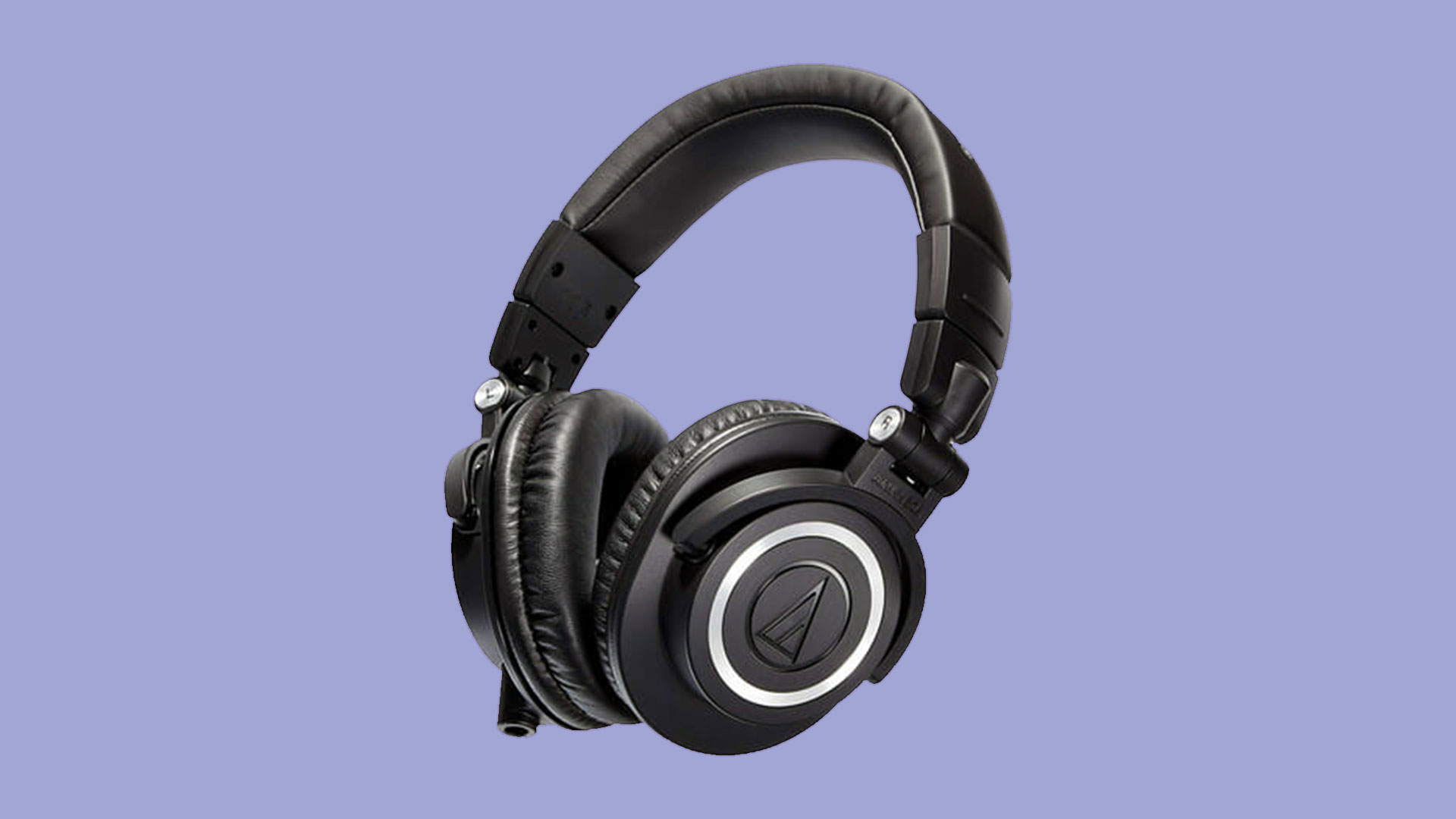
With that said, the Audio Technica ATH-m50x is also a decent pair of headphones for music production, mixing, and listening. If you’re a podcaster who also enjoys listening to high quality music, the ATH-m50x is a solid choice.
Buy on Amazon
MSRP: $149
Sennheiser HD-25
The Sennheiser HD-25 is a world-renowned headphone designed primarily for DJs. Compared to the two headphones mentioned above, the HD-25 has an extremely portable and comfortable design.
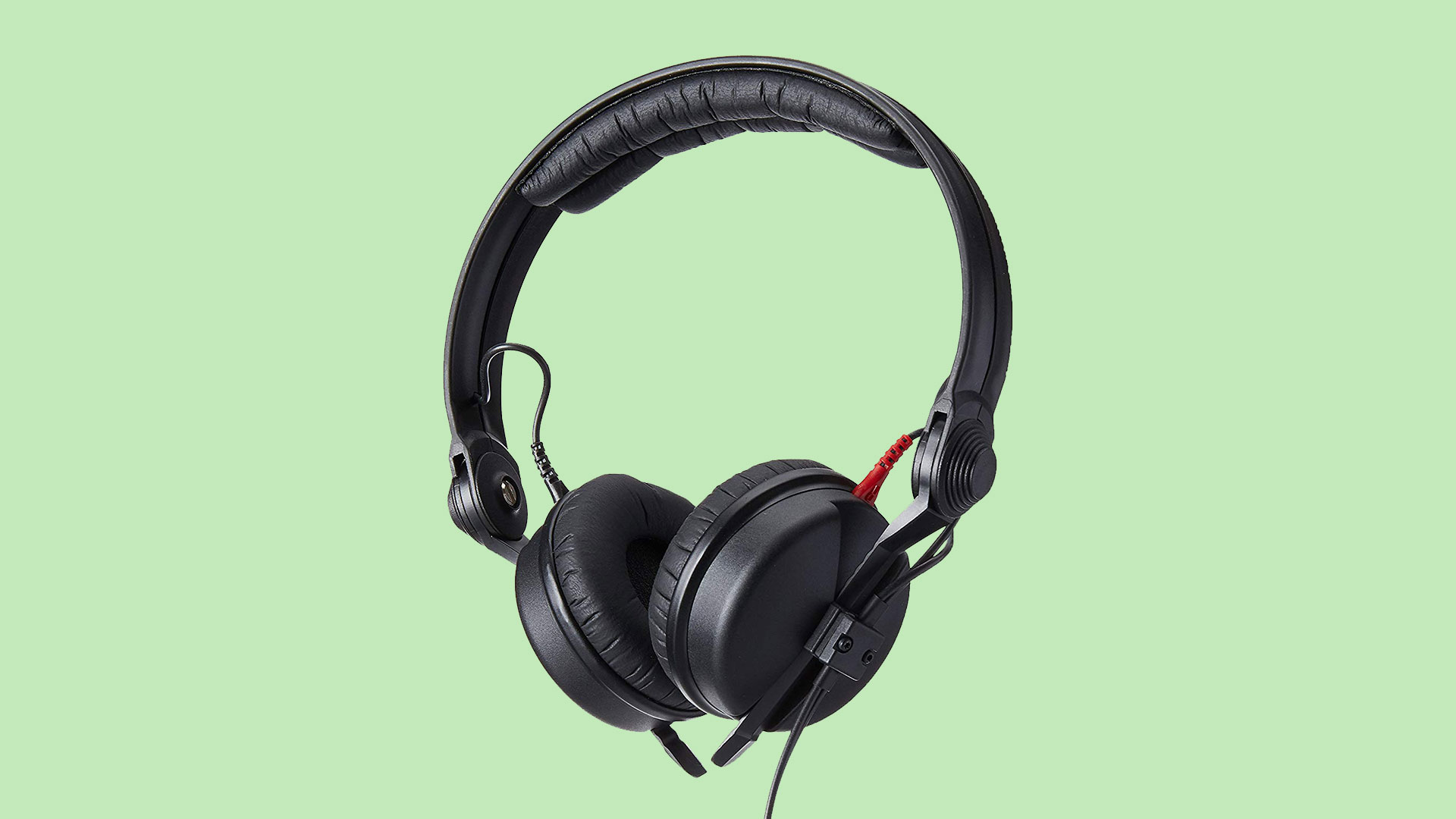
The HD-25’s sound signature also makes it a great choice for casual listening – especially for EDM and other bass-heavy genres. If you’re looking for a pair of great-sounding, comfortable, and stylish pair of headphones that won’t break the bank, the Sennheiser HD-25 is the way to go.
Buy on Amazon
MSRP: $149
Audio Technica ATH-m20x
If you’re on a tight budget, the Audio Technica ATH-m20x is a solid choice for podcasting. Compared to the professional headphones above, the ATH-m20x loses out on things like extended frequency response and overall sound quality. However, if you’re only looking for a pair of headphones for podcast recording and editing, the reduced frequency response and sound quality aren’t extremely relevant, as the human voice falls in the middle of the frequency range.
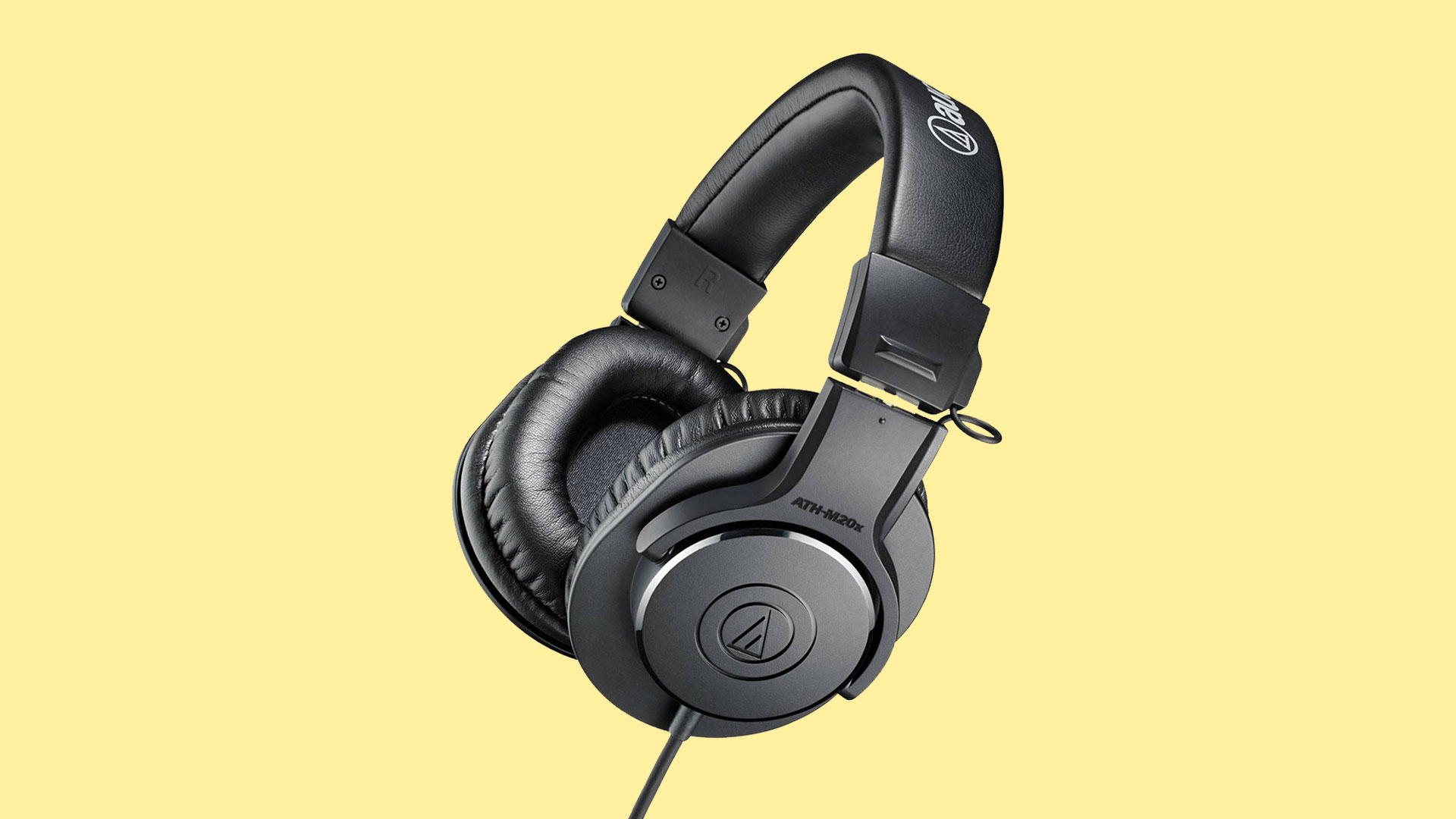
If you plan on using the headphones for listening to music as well, the Audio Technica ATH-m50x or Sennheiser HD-25 are better choices.
Buy on Amazon
MSRP: $49
Conclusion
If you’re serious about boosting the production quality of your podcast, investing in a decent pair of closed-back wired headphones can have a big impact. Out of the hundreds of headphone models that exist, the Sony MDR-7506, Audio Technica ATH-m50x, Sennheiser HD-25, and Audio Technica ATH-m20x are my personal recommendations for the reasons mentioned above. If you have any questions or comments about the headphones mentioned above, feel free to reach out to me on Twitter or send me an email.